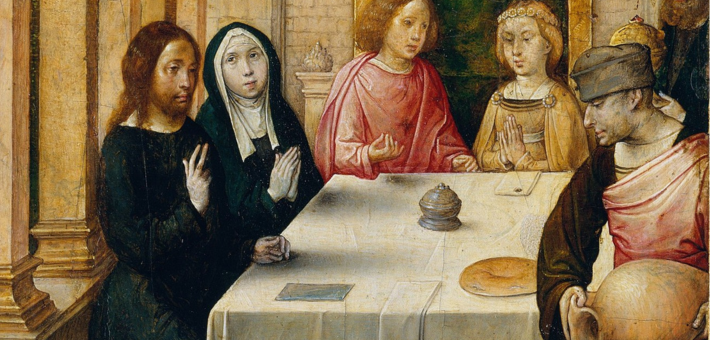Commentary on Isaiah 62:1-5
The book of Isaiah is traditionally divided into three sections: First Isaiah (chapters 1–39) corresponds to the period of the seventh and eighth centuries BCE, with substantial exceptions. Second or Deutero-Isaiah (chapters 40–55) is from the end of the Babylonian exile. And Third or Trito-Isaiah (chapters 56–66) corresponds to the postexilic period. Trito-Isaiah is a realization of the return prophesied in Deutero-Isaiah after the capture of Babylon by Cyrus, the king of Persia.
Isaiah 62:1–5, comes at the end of Isaiah 60–62, often titled “Promises of Salvation.” Assigned for the season of Epiphany, Isaiah 62:1–5 highlights the revelation to the nations of Zion’s righteousness and salvation, and God’s radical hope embodied in the reversal of the status of the people of God.
Isaiah 62 is a proclamation of reversal: a reversal of identity and experience. Isaiah 56–66 includes events referring to the postexilic period, with a focus on rebuilding and restoration. Whether Isaiah 62 is written in anticipation of a return from exile or refers to events after the Judeans returned to their homeland, we as modern readers are called to witness a rebuilding of a community who have gone through a devastating exile, wherein they lost everything dear to them. Rebuilding in Isaiah 62 does not give an assurance to restore the Judeans’ past lives, practices, traditions, and experiences, but reimagines a new beginning in which new identity and experience are nurtured.
Unlike the silence of God, often understood as God’s anger, abandonment, or disinterest, Isaiah 62:1 opens with the words “For Zion’s sake I will not keep silent, and for Jerusalem’s sake I will not rest,” declaring an end to the time of silence. Scholars differ on who the speaker of these verses is. While some argue that it is the prophet interceding on behalf of Zion and Jerusalem, others opine that God is the speaker. Since God’s silence is assumed elsewhere in the book of Isaiah (42:14; 57:11; 64:12), and based on the radical reversals declared in the succeeding verses, I suppose that God is the speaker responding to the cries of the people who believed God was silent.
The result of God’s speech is that God will ensure that the nations will see Zion’s vindication, which will shine out like the dawn, and her salvation like a burning torch (verse 1). This new status will ensure a new identity and experience. After being released from exile, illustrations of which can be found in great detail in the books of Ezra and Nehemiah, the Judeans are assured with a series of reversals.
First, their identity is reversed: The city which was called “forsaken” and “desolate” (62:4a) and which was decimated by greed, corruption, and war now receives a new name and identity. It is no more a desolate land but shall be called Hephzibah—“My delight is in her”—and Beulah—“married” (62:4b). In this new identity, the relationship between God and Jerusalem is as intimate as that between bride and bridegroom (62:5).
This relationship is interestingly situated in the celebratory stage where the bride’s desire and love are for the groom and the groom’s affection and love are for the bride. In this passage’s perfectly equal marriage metaphor—unlike other instances such as in Hosea, where the marriage metaphor carries the implication of an abusive husband’s anger toward his wife—Jerusalem, the one who was vulnerable, will be the delight of the groom.
Second, their experience is reversed: The prophet who communicates the message of God says there won’t be exploitation anymore. The past experience of being exploited and robbed of their labor will not be the reality. The laborers will receive the fruit of their labor (62:8); wrongs will be righted, and Jerusalem, which was known for its desolation and destruction by the Babylonian Empire, will now become a beacon to the world.
While it is problematic to highlight the election of Jerusalem in the context of genocide in Palestine today, it is important to remember that in Isaiah 62, the ones who can claim God’s protection and care are the ones who lack power and privilege. Any allusions to the election in the scripture in light of the current context is not just problematic but detrimental. God in the Old Testament, and especially in our passage, only sides with the oppressed, the marginalized, and those who do not have power. As we witness often in the Hebrew Bible, God is the God of the poor, afflicted, and the marginalized.
For those who experience rejection because of their social-political identities, excommunication due to their gender identities, or marginalization and discrimination of any form, God promises that they have a place in God’s plan and that God will never abandon them but, rather, will find delight in them, seek them out, and call them “holy people.”


January 19, 2025